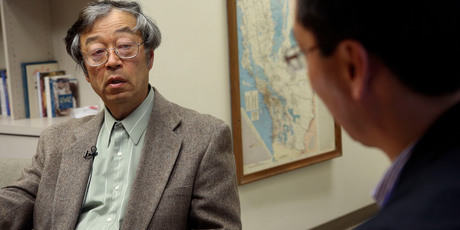Bitcoin alleged founder - 'it's not me'
The man Newsweek claims is the founder of Bitcoin denies he had anything to do with the digital currency.In an exclusive two-hour interview with The Associated Press, Dorian S. Nakamoto, 64, said he never heard of Bitcoin until his son told him he had been contacted by a reporter three weeks ago.
Reached at his home in Temple City, California, Nakamoto acknowledged that many of the details in Newsweek's report are correct, including that he once worked for a defence contractor. But he strongly disputes the magazine's assertion that he is "the face behind Bitcoin".
Since Bitcoin's birth in 2009, the currency's creator has remained a mystery. The person or people behind its founding have been known only as "Satoshi Nakamoto," which many observers believed to be a pseudonym.
Nakamoto did not admit to Newsweek as being behind the phenomenon that, since its 2009 launch, has been hailed as a financial revolution despite scandals over its use in the drugs trade and money-laundering.
But Newsweek said on Thursday the man, whose quiet career involved classified work as a systems engineer for the US government and government contractors, initially tacitly acknowledged his role in creating the crypto-currency that has rocked the banking world.
"I am no longer involved in that, and I cannot discuss it," he said. "It's been turned over to other people."
Later on Thursday, Nakamoto told reporters camped outside his house: "I'm not involved in Bitcoin."
The Bitcoin Foundation, which supports the development of the currency, would not confirm Newsweek's story.

"We have seen zero conclusive evidence that the identified person is the designer of Bitcoin. Those closest to the Bitcoin project, the informal team of core developers, have always been unaware of Nakamoto's true identity, as Nakamoto communicated purely through electronic means," it said.
Newsweek however laid out a strong story, in a scoop meant to relaunch its first print issue after publishing online for two years.
It said Nakamoto was born in Japan in 1949 and immigrated to the United States 10 years later.
He studied physics at California State Polytechnic University and worked for a number of companies, but has apparently not held a steady job since 2002.
He spends much of his time on his model train hobby and has apparently not tapped the millions of dollars of Bitcoin wealth Newsweek says comes from authoring the computer code behind it.
His family, including two younger brothers who are also scientists, did not know of his link to Bitcoin.
"He's a brilliant man," his brother Arthur Nakamoto told Newsweek. "He's very focused and eclectic in his way of thinking. Smart, intelligent, mathematics, engineering, computers. You name it, he can do it."
But they described a man with a deep libertarian streak, intensely private and distrustful of the government and banks.
Ilene Mitchell, one of Nakamoto's six children from two marriages, said he taught her while growing up to "not be under the government's thumb".
Nakamoto's 2008 Bitcoin manifesto stressed the need for an online, electronic cash system that did not go through a financial institution, which requires both trust in the institution and payment for its role as an intermediary.
Analysts have called his structure brilliant in the way it issues Bitcoin without a central bank authority, and keeps a cryptographic record of transactions via distributed computing that also protects users' anonymity .
Gavin Andresen, chief scientist of the Bitcoin Foundation, said he had corresponded online with a man called Satoshi Nakamoto over one year as they refined the Bitcoin code.
But they never spoke on the telephone and Andresen did not learn anything about his personal life.
"He went to great lengths to protect his anonymity," Andresen told the magazine. "All we talked about was code."
NZ Herald

No comments:
Post a Comment